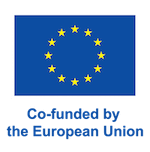World Head and Neck Cancer Day: Dale Bates’ story
Do you know how head and neck cancer ribbon looks like? It is likely that most people do not, and it does not matter. However, patients behind it do it. Dale Bates is one of the patients affected by this type of cancer. He lives in Seville (Spain) and today we bring you his testimony dealing with head and neck cancer.
Dale’s case is special because he invited us to get to know a part of his life by participating in one of eCAN pilot projects. He was treated at Hospital Virgen Macarena (Seville, Spain) and he took part in the intervention group of our pilot 1b (which dealt with head and neck cancer patients). Coinciding with World Head and Neck Cancer Day, we wanted to bring his testimony and offer a few glimpses of this type of cancer, that is not as known as other malignant tumours, but it affected over 100.000 people in the EU in 2022.
Head and neck cancer mainly comprehends those inside the mouth, throat and voice box. Although less common, those in the salivary glands, sinuses or muscles and nerves in the head and neck are also included in this category.
Head & Neck cancer: an overview
There are risk factors that increase the chances of suffering from this illness, such as tobacco use and exposure to tobacco smoke; drinking alcohol or the Human Papilloma Virus (HPV). According to the Mouth Cancer Foundation, this last one could overtake tobacco and alcohol as the main risk factor within the next decade due to high-risk sexual behaviour.
Depending on where in the head and neck the cancer started the symptoms vary. However, among the most common there are: ulcers or white or red patches anywhere in the mouth that do not heal within 3 weeks; a lump or swelling anywhere in the mouth, jaw or neck that persists for more than 3 weeks; difficulty in swallowing, chewing or moving the jaw or tongue; numbness of tongue or other area of the mouth; a feeling that something is caught in the throat; a chronic sore throat or hoarseness that persists more than 6 weeks or unexplained loosening of teeth.
The European Cancer Information System (ECIS) estimates 106.511 new head and neck cancer cases were diagnosed in 2022 within the EU member states, Iceland, Liechtenstein, Norway and Switzerland. Compared to other cancers, this number does not rank among the most frequently diagnosed cancers in the continent. In this sense, ECIS estimates that breast (390.675), colorectum (367.409) and prostate (343.860) cancers had the highest incidence in this part of the world the same year.
Why is it suitable for the eCAN pilot projects?
Despite showing lower incidence than other types of cancer, head and neck malignant tumours feature specific qualities that make this cancer suitable for taking part in the eCAN pilot projects. Head and neck cancer patients often experience functional impairment due to the tumour and its treatments, including difficulty swallowing, speaking, breathing, pain and cancer-related fatigue. To tackle side effects, rehabilitation is recognised as an important aspect of care for patients suffering from this type of cancer. At the same time, several clinical trials have shown the beneficial effects of physical exercise during and/or after cancer treatment.
For all these reasons, eCAN chose head and neck cancer patients to take part in the pilot projects conducted during the last months. The aim of this study was to explore how telemonitoring and teleconsultation could improve physical rehabilitation processes of cancer patients.
References:
European Cancer Information System
MacMillan Cancer Support. Signs and Symptoms of head and neck cancers. URL: https://www.macmillan.org.uk/cancer-information-and-support/head-and-neck-cancer/signs-and-symptoms-of-head-and-neck-cancer
Mouth Cancer Foundation. Self Check. URL: https://www.mouthcancerfoundation.org/wp-content/uploads/2020/10/mouth-cancer-self-check-croped.pdf
![]() Co-funded by the European Union. Views and opinions expressed are however those of the author(s) only and do not necessarily reflect those of the European Union or HaDEA. Neither the European Union nor the granting authority can be held responsible for them.
Co-funded by the European Union. Views and opinions expressed are however those of the author(s) only and do not necessarily reflect those of the European Union or HaDEA. Neither the European Union nor the granting authority can be held responsible for them.




